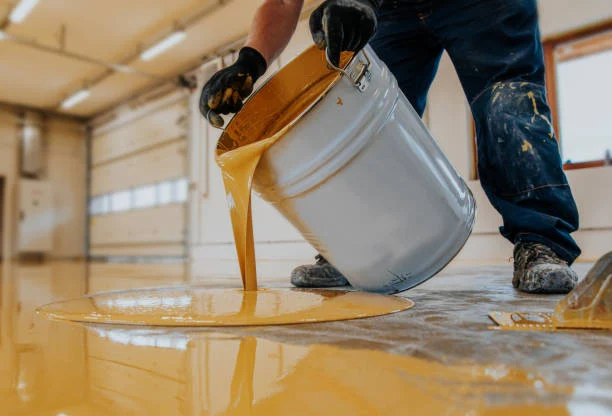
Concrete Coating Inspector (CCI)
The Concrete Coating Inspector (CCI) program aims to comprehensively educate and certify individuals in the correct techniques for inspecting surface preparation and the application of protective coatings on industrial concrete structures and facilities.
Concrete Coating Inspector's Guide to Durability and Protection
Concrete structures are ubiquitous in our built environment, from bridges and buildings to highways and industrial facilities. To ensure their longevity and resistance to the harsh effects of weather, chemicals, and wear and tear, protective coatings are often applied. But what role does a concrete coating inspector play in ensuring the durability and protection of these structures? In this comprehensive guide, we will delve into the critical responsibilities of a concrete coating inspector and how their expertise safeguards the integrity of concrete surfaces.
The Crucial Role of a Concrete Coating Inspector
Concrete coating inspectors are the unsung heroes of the construction and maintenance industry. They are responsible for ensuring that protective coatings are applied correctly, adhering to industry standards and specifications. The primary goal is to guarantee the longevity and protective qualities of the concrete surface.
1. Pre-Inspection Assessment
Before any coating application begins, a concrete coating inspector plays an essential role in the pre-inspection phase. This involves reviewing project specifications, ensuring the proper surface preparation, and assessing environmental conditions. Factors such as temperature, humidity, and substrate condition are meticulously examined to guarantee the coating's adhesion and performance.
2. Material Inspection
One of the critical responsibilities of a concrete coating inspector is to assess the quality of coating materials. This includes examining the coating product for compliance with industry standards and ensuring that it meets the project's requirements. The inspector will also verify that the coating materials are stored and handled correctly to prevent contamination or degradation.
3. Surface Preparation
Concrete surfaces must be adequately prepared before coating application. The inspector ensures that cleaning, profiling, and repair procedures meet the specified standards. Surface contaminants, such as grease, oil, and previous coatings, are thoroughly removed to ensure proper adhesion.
4. Coating Application
During the coating application process, a concrete coating inspector is vigilant in monitoring the coating thickness, technique, and environmental conditions. Proper application is crucial to achieving the desired protection and durability. The inspector may use various tools, including dry film thickness gauges and environmental monitoring equipment, to verify compliance.
5. Adherence to Safety Regulations
Concrete coating inspectors are also responsible for ensuring that safety protocols are followed during the application process. This includes verifying that workers are using the appropriate personal protective equipment and that the job site is safe for both workers and the surrounding environment.
6. Documentation and Reporting
A concrete coating inspector maintains comprehensive documentation of all inspection activities. This includes recording the condition of the concrete surface, materials used, environmental conditions, and any deviations from the project specifications. Accurate reporting is vital for project transparency and quality assurance.
Conclusion
The work of a concrete coating inspector is fundamental to the long-term durability and protection of concrete structures. By meticulously overseeing every step of the coating process, from pre-inspection assessments to application and reporting, these professionals ensure that the protective coatings perform as intended, extending the life of concrete structures and saving substantial maintenance costs.
Concrete coating inspectors are not just individuals in hard hats; they are guardians of infrastructure, ensuring that our roads, bridges, and buildings withstand the test of time. Their commitment to quality and adherence to standards make them indispensable in the world of construction and maintenance, where the longevity and protection of concrete structures are paramount.

Exploring Concrete Coating Inspector (CCI) Certification Information: A Comprehensive Guide
- 1. NACE International: NACE International is a well-known organization for corrosion control and coating inspection. They offer various certification programs. You can visit their official website or contact them directly for information about the Concrete Coating Inspector (CCI) Level 2 certification.
- Website: [NACE International](https://www.nace.org/) - 2. SSPC (The Society for Protective Coatings): SSPC is another organization that provides training and certification in the field of protective coatings. They may offer courses related to concrete coating inspection.
- Website: [SSPC](https://www.sspc.org/) - 3. Training Providers: Look for training providers that specialize in coating inspection and related fields. They may offer courses specifically tailored to the Concrete Coating Inspector (CCI) Level 2 certification.
- 4. Local Colleges and Universities: Some educational institutions may offer relevant courses or certifications in partnership with industry organizations.
- 5. Online Learning Platforms: Explore online learning platforms that provide courses in coating inspection. Platforms like LinkedIn Learning, Udemy, or Coursera might have relevant courses.
When researching, make sure to check the prerequisites for the certification, the curriculum of the training, and the accreditation of the certifying body. Additionally, contacting professionals in the industry or networking with individuals who hold similar certifications can provide valuable insights.
Keep in mind that certification requirements and availability may change, so it's essential to verify the most up-to-date information from the relevant sources.






0 Comments